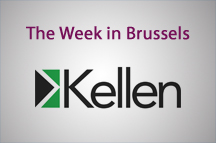 This week brought some slight hope for all those that have troubles changing their alarm clocks back and forth each spring and autumn. MEPs have tasked the European Commission to study changes to the summertime directive. According to scientists, changing to summertime has not delivered the expected energy savings – also negative effects on health and well-being could be observed. In the next steps of the revision process to the summertime directive, it will also have to be defined what will be the new ‘normal time’ – winter or summer time.
This week brought some slight hope for all those that have troubles changing their alarm clocks back and forth each spring and autumn. MEPs have tasked the European Commission to study changes to the summertime directive. According to scientists, changing to summertime has not delivered the expected energy savings – also negative effects on health and well-being could be observed. In the next steps of the revision process to the summertime directive, it will also have to be defined what will be the new ‘normal time’ – winter or summer time.
Also good news this week for all online shopping aficionados. After intense debate at the Strasbourg Plenary, MEPs decided this week to stop geo-blocking. This is an important step for all consumers as the end of geo-blocking will ease price comparison when online shopping, and will allow to have more shopping choices across Europe. According to EC studies, a vast majority of online shopping platforms is applying geo-blocking. What is not yet covered by the decision is geo-blocking of online streaming services where their use is limited by country borders.
 Another topic of intense debate this week was the plenary vote on the reports of MEPs Huebner and Silva Perreira on the composition of the post-Brexit European Parliament. In the end, the European Parliament decided that 46 of the British MEPs seats will not be allocated to a new transnational list. Supporters of the proposal for a transnational list had underlined that it would create a sense of deepened unity among EU citizens. Opponents highlighted the distance between MEPs that would get elected on the basis of a transnational list and the electorate. As a result of the vote, the number of MEPs will be reduced from 751 to 705 after Brexit and 27 UK seats will be divided between 14 under-represented EU countries. Separately, MEPs confirmed the ‘Spitzenkandidaten’ process to determine the next Commission President.
Another topic of intense debate this week was the plenary vote on the reports of MEPs Huebner and Silva Perreira on the composition of the post-Brexit European Parliament. In the end, the European Parliament decided that 46 of the British MEPs seats will not be allocated to a new transnational list. Supporters of the proposal for a transnational list had underlined that it would create a sense of deepened unity among EU citizens. Opponents highlighted the distance between MEPs that would get elected on the basis of a transnational list and the electorate. As a result of the vote, the number of MEPs will be reduced from 751 to 705 after Brexit and 27 UK seats will be divided between 14 under-represented EU countries. Separately, MEPs confirmed the ‘Spitzenkandidaten’ process to determine the next Commission President.
MEPs also expressed support for more research and innovation in clean energy this week, thereby making the energy system more affordable and efficient. The key factors to achieve that objective are the availability of both public and private investments, as well as the involvement of citizens. Available funding instruments should be clarified and increased in the next Framework Programme. Additionally, better coordination needs to take place between EU and national levels. Europe is globally leading in the development of clean energy technologies which are essential in achieving the 2030 decarbonisation goals.
Finally, coalition negotiations were concluded this week in Germany, pending approval by the social-democratic party members. With social-democrats in two key Ministries (Foreign Affairs and Finances), EU reform discussions will likely receive new impetus.














